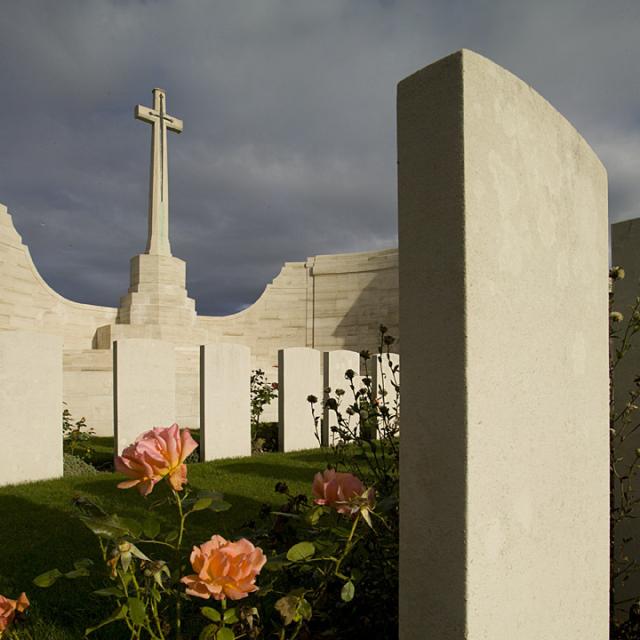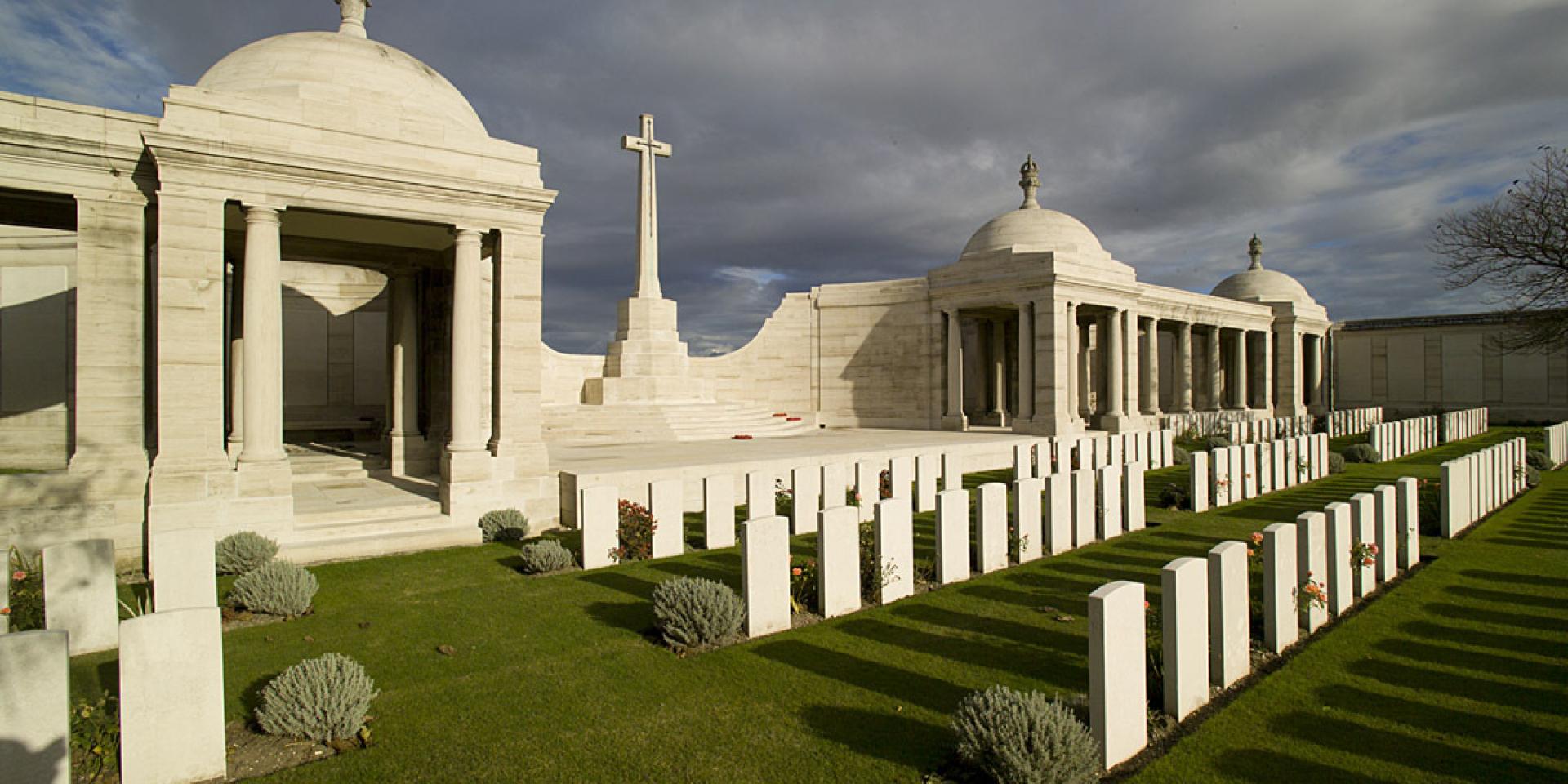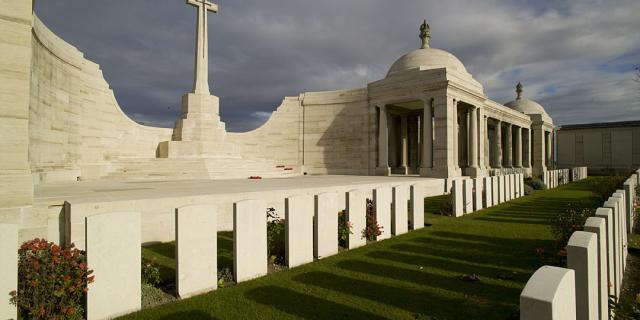"You will be a man my son"
In 1914, Rudyard Kipling, author of The Jungle Book and winner of the Nobel Prize for Literature in 1907, was a strong advocate of the British Empire’s entry into the war. Faithful to the education he had received, his only son John, dedicatee in 1910 of the famous poem “If” (You will be a man my son), wanted to enlist. He was refused at first for health reasons, but his father’s influence allowed him to join the Irish Guards. He was immediately launched into the great battle of Artois, started by the Allies in September-October 1915. In the Gohelle plain, the British used chlorine gas for the first time, in response to the Germans who had already tested it at Ypres. After the initial surprise effect, a change in the wind direction pushed the gas towards the British lines and contributed to the failure of an offensive that was otherwise poorly prepared.
 Dud Corner CWGC - contains 1,800 burials and the walls commemorate 21,000 men with no known grave who fell in the battle of Loos in 1915 and later battles at Lys, Estaires & Bethune.
Built on the site of the Lens Rd Redoubt stormed by the 9th Black Watch on 25th Sept 1915
Dud Corner CWGC - contains 1,800 burials and the walls commemorate 21,000 men with no known grave who fell in the battle of Loos in 1915 and later battles at Lys, Estaires & Bethune.
Built on the site of the Lens Rd Redoubt stormed by the 9th Black Watch on 25th Sept 1915










